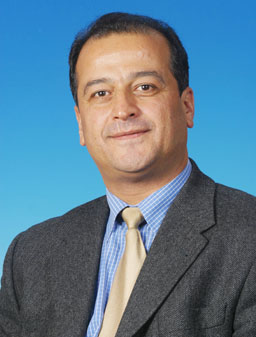The Rochester Bridge Trust is to sponsor a new professorship at the University of Greenwich at Medway, providing more than £250,000 of funding over three years.
Dr Amir Alani, an expert in the assessment, repair and maintenance of structures such as bridges, has been appointed to the new post. He will join the University of Greenwich on 1 August 2009 as the first Rochester Bridge Trust Professor, carrying out research and teaching which is relevant to the work of the trust and other regional and national organisations.
Currently Head of the Department of Mechanical & Design Engineering at the University of Portsmouth, Dr Alani is a specialist in the use of ground penetrating radar and its applications, such as the assessment of structures, site and archaeological investigations. He also has expertise in the repair and maintenance of buildings and structures damaged in earthquakes and the use of recycled glass in structural concrete.
As well as carrying out research, Dr Alani will also train engineers in maintenance strategies and strengthening techniques. This will support the skills base in the region and help to boost employment.
A strong supporter of the university, the Rochester Bridge Trust chose to sponsor the professorship to encourage innovation and increased knowledge in infrastructure, an area it focuses on in its charitable work.
Dr Anne Logan, Junior Warden of The Rochester Bridge Trust, says: “The Rochester Bridge Trust is proud to sponsor this professorship. We are sure Professor Alani’s work will contribute greatly to the local community, bringing valuable research activity and practical expertise to the university, and providing a boost to the local economy. We look forward to benefitting from his expertise.
Tessa Blackstone, Vice-Chancellor of the University of Greenwich, says: “This appointment rests on a generous gift from the Rochester Bridge Trust and the university is very grateful to the trust for its support. I am sure that, working closely with the trust, Dr Alani will make an important contribution to the protection of historic buildings and structures in this region, as well as enriching our research and teaching in civil engineering. This university places great value on external partnerships and this is an excellent example of higher education working with an important local organisation for the greater good.”
Dr Alani says: “I am very pleased to be joining the University of Greenwich and I am looking forward to working closely with the Rochester Bridge Trust, which has such a long history of providing and maintaining river crossings.”
Information Notes:
The Rochester Bridge Trust is a charitable trust that exists to maintain the bridges and serve the local people of Medway. The Rochester Bridge Trust has served the people of Kent for centuries by providing crossings over the River Medway and more recently by also making charitable and educational grants. Regulated by the Charity Commission, the Trust must use its income “for the passage over, under, or across the River Medway,” for the “maintenance of the banks and channels of the River Medway” and for “other charitable purposes primarily in the County of Kent.”
The Trust’s wardens, who are not paid, include members of all three local Councils in the area to ensure fair representation. Since 1999 a new Charity Commission scheme has provided for twelve wardens and assistants: three nominated by the Medway Council, two by the Kent County Council, one by the Maidstone Borough Council, and six assistants drawn from the local community and appointed by the Trust.
The University of Greenwich has more than a century of experience in engineering education and research. The university’s Civil Engineering department has been based on the Medway campus, at Chatham Maritime, since 2002. It offers superb facilities including the largest concrete slab testing rig in Europe and a leading edge environmental chamber, which recreates conditions such as heat, humidity and salt spray, to enable researchers to predict how and when buildings and structures will decay.


